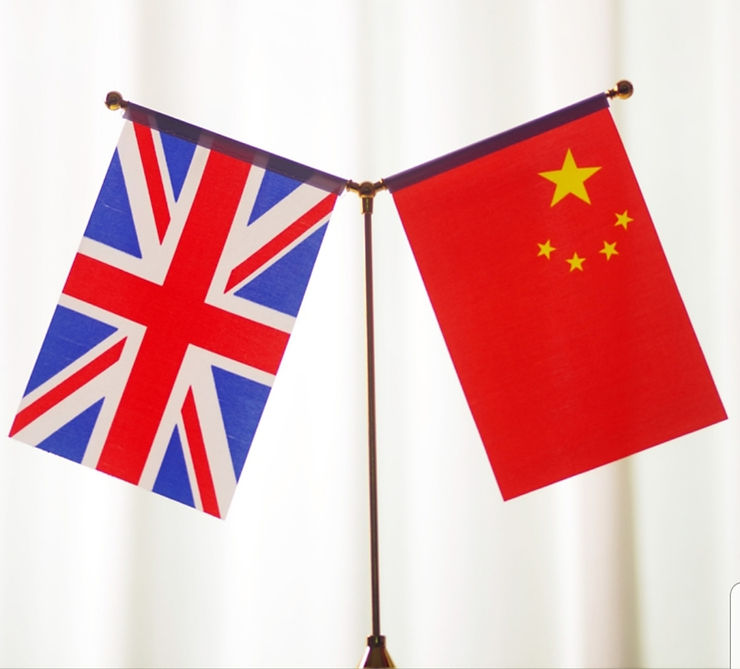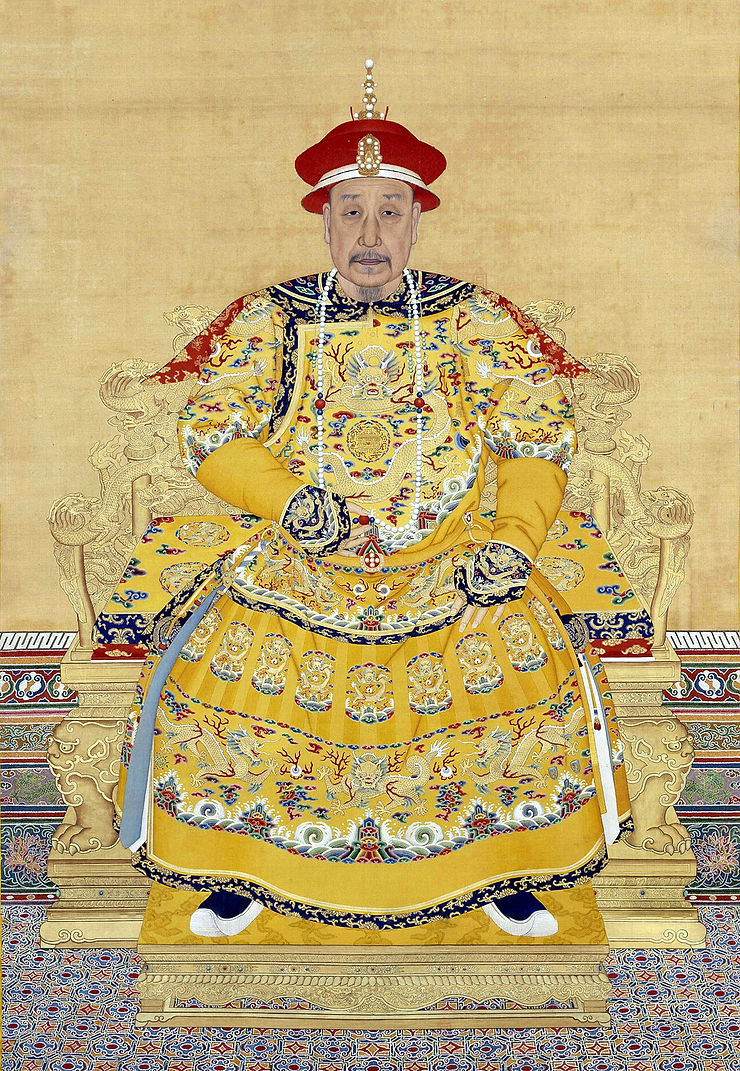A short history of UK-China relations
- Peter XIAO
- May 31, 2021
- 5 min read
Updated: Sep 2, 2021

Britain and China, two countries that are on the opposite sides of the Eurasian continent. The two countries share a lot of similarities and yet many differences. For example both countries are very proud of their tea culture and also greatly value the importance of train in their transportation system. However the differences are also huge and especially on the character and also the history of modernisation of the two countries. Britain is a civilisation of the sea meanwhile China is a civilisation of the land. This major difference in the nature of the two countries created a lot of obstacles in the history of diplomacy between the two countries.

The first official contact between Britain and China came in 1793, this year marked the 80th birthday of the Emperor Qianlong of the Qing Dynasty. The then British monarch George III sent Earl Macartney as his personal representative and also a vast embassy to Beijing to congratulate the Emperor for his 80th birthday. What the British hoped to achieve in this visit was to establish an official diplomatic and trade relationship with China. British officials hoped to bring China into the global trade system as China under the reign of the Qianlong Emperor(1735-1796) was the largest economy in the world. They strongly believed that by establishing an official diplomatic relationship with China, trade relationships with China will greatly be improved. Before the visit, there were many red-tape costs and bureaucracy for British merchants based in Guangzhou and these phenomenon had a huge impact on the operation of their businesses. However, the embassy visit led by Earl Macartney turned out to be a huge disappointment. The arrogance and ignorance shown by the Qing Imperial Court were unbelievable and the Emperor himself was furious when he found out that Macartney was not willing to kowtow to him. He was also angered by Macartney’s request on establishing a formal diplomatic relationship with China where British ambassador and diplomats will reside in Beijing. Qianlong Emperor declared that China was a rich and prosperous heavenly kingdom and therefore it didn’t need to do business with oversea merchants. Given the general knowledge and world view of the Chinese emperors and elites at the time, this response by the Qianlong Emperor was not surprising. He fundamentally believed that China was the centre of the world and Britain was only a small island in which uncivilised people inhabited. He had no idea about the First Industrial Revolution taking place in Britain in the 18th Century and also the dramatic expansion of the British Empire in the same period. This arrogance and ignorance shown by the Qianlong Emperor made China missed the opportunity to integrate with the rest of the world and also cost China’s prospect of industrialisation and modernisation. The consequences of this misjudgement were severe, China’s sufferings and humiliations after 1840 showed the catastrophic result of this misjudgement.

The next interaction between Britain and China was even more unpleasant. British merchants still could not enter the Chinese market legally and sold their products freely. There was also a lack of demand from China for British exported goods because China remained an agrarian economy at Pre-Industrial level. And therefore there was no need for British industrial goods in the Chinese economy. Meanwhile the Chinese exported goods to Britain such as tea and silks were necessities for the British. As the time progressed, there was a severe trade deficit between the British and the Chinese. Now the British government began to figure out alternatives that could help them to turn the game. Opium was the answer given by the British to change this situation. This incident eventually triggered the First Opium War between the Qing Dynasty and Britain. After China lost the war, the Treaty of Nanjing was signed between the two countries. One of the major articles inside the treaty determined that Hong Kong will permanently be conceded to the British. This particular article had a long lasting impact on the future development of UK-China relations.

In 1972, the year when Richard Nixon visited China. The UK and China agree to establish full diplomatic ties with the exchange of Ambassadors, signalling the two countries’ commitment to a strong and conductive bilateral relationship. A few years later, following the end of the Cultural Revolutions, Deng Xiaoping came back to power and now there was a change in the attitude from the top political leadership on UK-China relations. In 1979 Deng Xiaoping met Murray MacLehose in Beijing and discussed the future of Hong Kong with him. Deng Xiaoping reasserted China’s commitment on taking back Hong Kong after 1997 and urged the British government to undertake negotiation with China over the handover of Hong Kong. In 1982, the negotiation between UK and China over the handover of Hong Kong officially began and it was in this year that Deng Xiaoping came up with the idea of “One Country, two systems” when he met UK’s envoy Edward Heath. Later in the year the then British Prime Minister Margaret Thatcher visited China and met with Deng Xiaoping. The two had a heated exchange in the Great Hall of the People and Thatcher eventually backed down when Deng told her that sovereignty could not be negotiated. Deng also warned Thatcher that if Hong Kong cannot be handed back to China peacefully in 1997, China will consider any necessary means and time to take back Hong Kong. Under months of intense negotiations, UK and China reached agreement and signed Sino-British Joint Declaration in 1984. Between 1984 and 1997, many incidents happened but Hong Kong was eventually handed back to China on the 1st of July 1997.

Following the handover of Hong Kong, the relationship between UK and China became more economically and technologically centred. The business cooperations between UK and China also became more frequent. In 2019, Uk exports of goods and services to China were worth 30.7 billion pounds, a record high, up from 23.4 billion pounds in 2018. And also by 2019, China was UK’s 6th largest export market and 4th largest source of imports. China also sends more students to the UK for education than any other countries in the world. There were over 86,000 Chinese students studying in the UK in 2018/2019. The number of Chinese students in the UK has risen by 62% since 2011/2012. The people to people exchange between the two countries also becomes more frequent as a result of this. Following the trade tensions and geopolitical rivalry between China and the US, the UK also becomes the most popular destination for Chinese international students in the world. The OKE Club and its members sincerely hope that the future of the UK-China relationship will be brighter and more prosperous. The OKE Club will be working hard on promoting the people to people exchange between the two countries by creating a welcoming community for UK and China entrepreneurs.




Comments